-
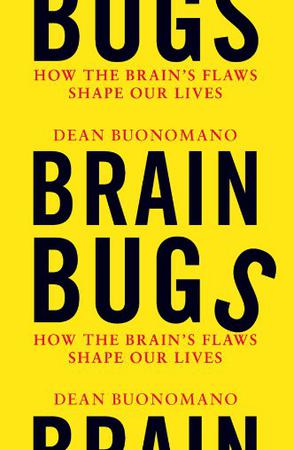
Brain Bugs
The human brain is more beautiful and complex than anything we could ever build but it's far from perfect. Our memory is unreliable; we can't multiply large sums in our heads; advertising manipulates our judgment; we tend to distrust people who are different from us; supernatural beliefs are hard to shake and we prefer instant gratification to long-term gain. Dean Buonomano illuminates the causes and consequences of these "bugs" in terms of the brain's innermost workings and their evolutionary purposes. He then goes a step further, examining how our brains function - and malfunction - in the digital, predator-free, information-saturated, special effects-addled world that we have built for ourselves. Along the way, this lively, surprising tour of mental glitches and how they arise gives us the tools to hone our cognitive strengths while recognising our inherent weaknesses. -
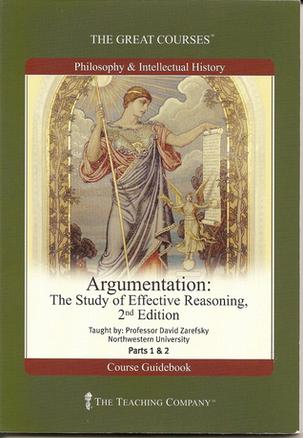
Argumentation: The Study of Effective Reasoning
What is effective argument? * It is Abraham Lincoln at Cooper Union in 1860, marshalling many lines of evidence to make the case that Congress has the power to regulate slavery. * It is Franklin D. Roosevelt in a 1940 "fireside chat," employing a vivid analogy to convince Americans to lend war equipment to Great Britain, then battling Nazi Germany alone. * It is the U.S. Supreme Court in 1954, using complex reasoning to decide unanimously that segregated schools are unconstitutional in Brown v. Board of Education. * It is any individual or organization, drawing on the theory of argumentation to reason through a position and make the best possible case for it. Argumentation: The Study of Effective Reasoning, 2nd Edition, is a rigorous introduction to the formal study of argumentation—communication that seeks to persuade others through reasoned judgment. In 24 lectures you learn the building blocks of an argument, the different categories of argument and the issues that are at stake in each, the kinds of evidence that serve as proof in an argument, and many other aspects of argumentation and reasoning, illustrated with examples from some of the most famous speeches, debates, and controversies in American history. -
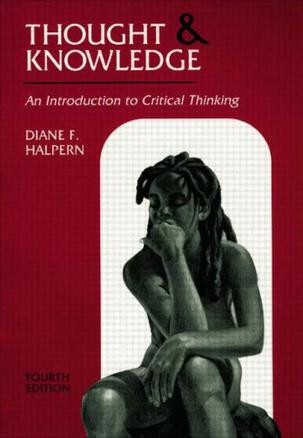
Thought and Knowledge
This best-selling textbook, written by award-winning educator and past president of the APA, Diane Halpern, applies theory and research from the learning sciences to teach students the thinking skills they need to succeed in today's world. This new edition retains features from earlier editions that have helped its readers become better thinkers. A rigorous academic grounding based in cognitive psychology is presented in a clear writing style with a humorous tone and supported by numerous practical examples and anecdotes. Thought & Knowledge, Fourth Edition has been revised to help students meet the challenges of a global neighborhood and make meaningful conclusions form the overwhelming quantity of information now available at the click of a mouse. The skills learned with this text will help students learn more efficiently, research more productively, and present logical, informed arguments. New features include: Template for Making Arguments. This is a crucial preparation tool for students in any subject area. For those planning on continuing to Graduate School, this feature is an essential reference. The Graduate Record Examination (GRE) now requires that all test takers write an argument on a contemporary topic. Concept Maps provide students with strategies to clarify complex information and retain long-term knowledge. Contemporary Examples, throughout the text, relate current events to the book discussions. Explanations on How to Evaluate Information found on Web sites. Revised Student Workbook. Thinking Critically About Critical Thinking, Fourth Edition is filled with new exercises to reinforce learning and practice newly acquired skills. This workbook can be purchased in a student package with the text or as a separate item. Thought & Knowledge, Fourth Edition is appropriate for use as a textbook in critical thinking courses offered in departments of psychology, philosophy, English, humanities, or as a supplement in any course where critical thinking is emphasized. -
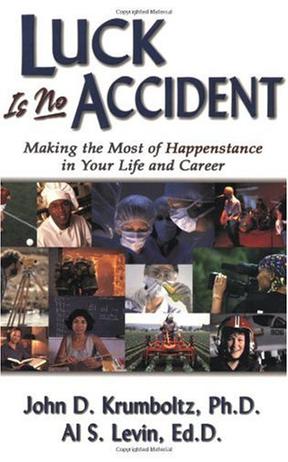
Luck Is No Accident
Unplanned events -- chance occurrences -- more often determine life and career choices than all the careful planning we do. A chance meeting, a broken appointment, a spontaneous vacation trip, a fill-in job, a hobby -- these are the kinds of experiences that lead to unexpected life directions and career choices. LUCK IS NO ACCIDENT is the first career planning book that actively encourages readers to create their own unplanned events, to anticipate changing their plans frequently, to take advantage of chance events when they happen, and to make the most of what life offers. Krumboltz is one of the most honored and highly respected psychologists in the career development field. -
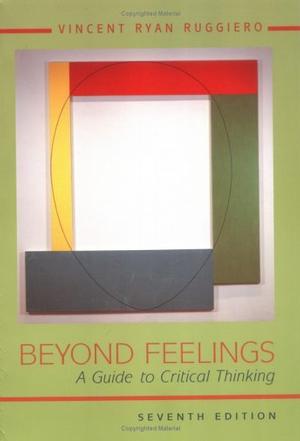
Beyond Feelings
This succinct, interdisciplinary introduction to critical thinking successfully dares students to question their own assumptions and to enlarge their thinking through the analysis of the most common problems associated with everyday reasoning. The text offers a unique and effective organization: Part I explains the fundamental concepts; Part II describes the most common barriers to critical thinking; Part III offers strategies for overcoming those barriers. -
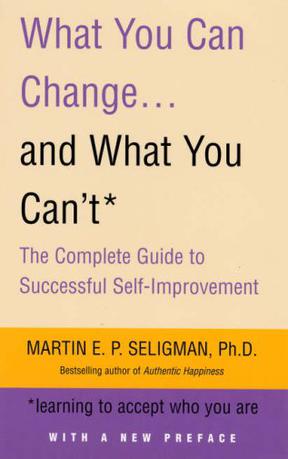
What You Can Change and What You Can't
Psychologist Seligman ( Learned Optimism ) here examines common psychological disorders according to their biological and societal, or learned, components. Most enlightening are his analyses of the effectiveness of relaxation, meditation, psychoanalysis and cognitive therapies in the treatment of anxiety, which, along with depression and anger, he claims, can largely be controlled by disciplined effort. Tables demonstrating the success rates of various approaches to given problems, evaluative questionnaires and mostly jargon-free prose complement Seligman's comprehensive, unformulaic discussion. Maintaining that dieting will not help people who are overweight ("Weight is in large part genetic"), the author urges a focus on fitness and health; asserting that a child's psyche heals faster than an adult's, he observes that childhood trauma does not necessarily shape one's adult life: "the rest of the tapestry is not determined by what has been woven before." Direct, instructive and nonreductive, Seligman's observations and theories are positive, realistic and sound.